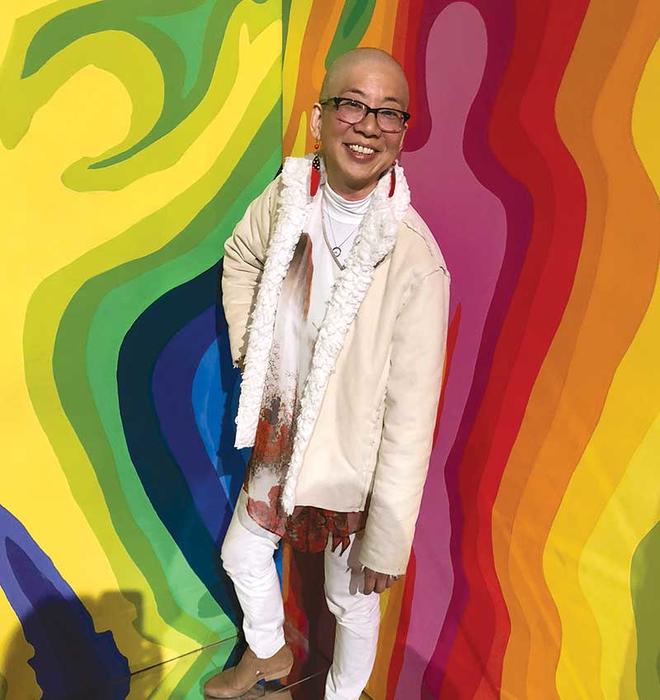
How does one approach death with joy?
What a strange question to ask in a magazine issue dedicated to the lives lost last year, considering the overwhelming sadness that usually accompanies death and loss.
But when Lynn King ’83 was diagnosed with stage-four cancer, her main focus became finding joy in the end of her life and helping others understand how to face mortality. She would come to consider the work she did in the months leading up to her death as her greatest achievement.
“These were not dark years,” says King’s daughter, Tara Vajra, of the two years leading to King’s passing. “These were the best two years I had with her my whole life.”
King spent most of her professional life as an executive coach and trainer, focusing on spirituality in business. She also worked to raise awareness of environmental sustainability. Most recently, her work took her to China for 14 years.
“She was a dreamer, she was a visionary,” Vajra says. “She was so incredibly optimistic all the time.”
When she was diagnosed with cancer about three years ago, King didn’t want to focus on the negative prognosis. Despite living in a culture that promotes a fear of death, King wanted to make the most of hers.
“We do a lot in our culture to focus on other big milestones — like birth or marriage — but death is often ignored, or it’s considered taboo to talk about,” Vajra says.
So King tried to break the taboo by talking about the ups and downs of her declining health. She was also open about her research into the logistics of death, from the life-changing power of having a death doula — someone who assists in the dying process, as a traditional doula does in the birthing process — to ways one can make death environmentally friendly. But the big death taboo-breaker was how King pursued joy.
“The last two years was this explosion of her doing anything that could possibly give her joy because she knew she didn’t have much time left to experience that,” Vajra says.
When her doctors told her to rest and relax, King would go to restaurants and museums. She created as much art as she could, from self-portraits to poetry, often around the themes of death. Then she shared that joy with others. King worked on art projects for Día de los Muertos (the Mexican Day of the Dead celebration) and the Qingming Festival (the Chinese Tomb-Sweeping Day) and opened them to the public.
She also had what she called a life celebration — a “funeral” held while she was alive so she could participate. At the celebration, she presented her “spiritual résumé,” which featured the aspects of her life that inspired her spiritual practice, and guests helped create King’s casket, contributing artwork.
King died in April, surrounded by her daughter and close friends. During the three-day funeral in her home, King was laid in her homemade casket; a candle burned as guests placed flower petals on her body and said blessings of gratitude.
In the end, King’s death was as she had hoped it would be — how many people can say the same? There’s a lesson to be learned from her death, says her daughter, Vajra: “Don’t wait to live your life with joy.”
Anna Mazarakis ’16 is a podcast producer.
DEC. 4, 1961 | APRIL 22, 2019






No responses yet